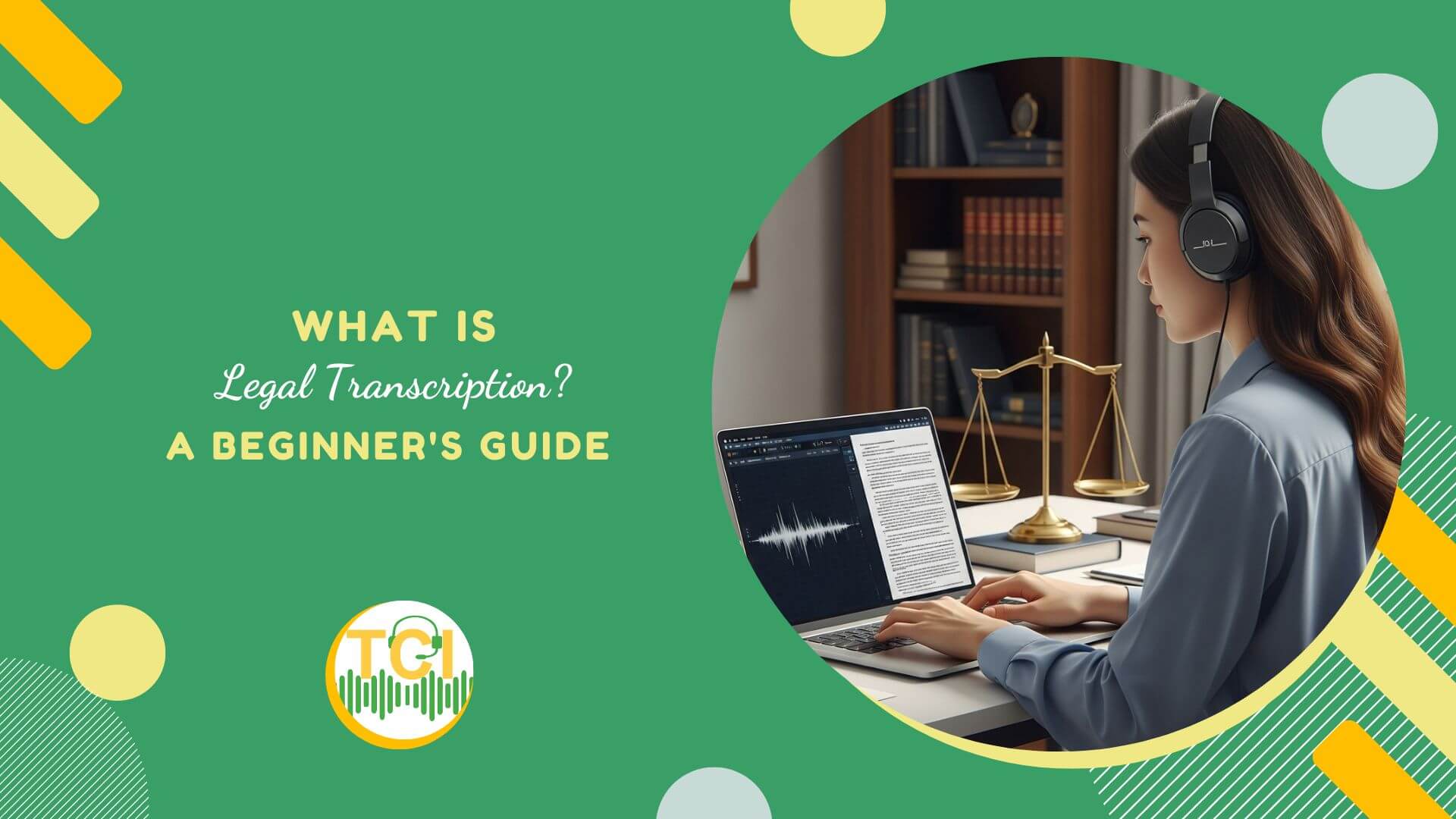
Have you ever wondered how the court system keeps track of every word spoken during a trial? Or how law firms, government agencies, and legal professionals maintain accurate records of their proceedings? The answer is legal transcription.
In this blog, we’re breaking down everything you need to know about legal transcription. From what it is and why it matters to how you can start your journey as a legal transcriber, we’ve got you covered. Whether you're exploring it as a career or just curious about the process, this guide will help you understand it all.
At its core, legal transcription is the process of converting audio recordings of legal proceedings, conversations, and documentation into written text. These recordings can be anything from court hearings, depositions, and trials to interviews and legal meetings.
But here's where it gets interesting – legal transcription is far more than just typing what you hear. It involves a high level of accuracy, understanding of legal terminology, and a keen eye for detail. The transcript created from these recordings is an official record and can be used in court, making precision and attention to detail vital.
Legal transcription plays a crucial role in the legal industry. Accurate transcriptions of court hearings, depositions, and other legal proceedings serve as official records for attorneys, judges, and other legal professionals. These transcripts can be used as references for future cases, helping in appeals, or in preparing defense strategies. In short, without transcription, the legal system would have a hard time functioning smoothly.
Let’s break down the impact:
Legal transcription isn't one-size-fits-all. Different types of legal processes require different transcription services. Here are the key types:
Court hearings, trials, and proceedings must be transcribed verbatim. These transcripts are used for appeal purposes or as an official record. Accuracy is paramount because even a single word can change the meaning of the case.
Depositions are pre-trial interrogations of witnesses under oath. These need to be transcribed accurately as they are often used in court proceedings to substantiate claims made by witnesses or parties involved in the case.
Interviews between clients, lawyers, or investigators may be transcribed for future use in the case or as supporting documentation. These interviews can cover a wide range of subjects, from witness statements to client meetings.
Not everything in the legal world happens in courtrooms. Law firms also have meetings, phone calls, and consultations that are often transcribed for records.
A legal transcriber is a professional who converts audio recordings of legal proceedings, such as court hearings, depositions, or client meetings, into accurate written documents. They don’t just type what they hear; they need to understand legal terminology and procedures to ensure that every word is captured correctly.
Legal transcribers play a critical role in maintaining the integrity of legal records. These transcriptions become official documentation used in court cases and law offices, so accuracy and confidentiality are vital. Whether they’re transcribing a deposition, courtroom trial, or witness statement, a legal transcriber makes sure the spoken word is faithfully represented in writing.
Becoming a successful legal transcriber isn’t just about typing fast (though that’s helpful!). You need a particular set of skills and knowledge to succeed in the field.
You need to be able to hear and understand legal jargon, accents, and possibly muffled audio. This means that a deep attention to detail is required.
Familiarity with legal terminology is a must for any legal transcriber. You'll often encounter legalese, court terminology, and specific jargon that will require some familiarity with the law. A strong foundation in legal terms will help you avoid common mistakes.
Transcribing legal audio quickly and accurately is a skill that improves with practice. You’ll be expected to type at speeds of 60-80 words per minute or higher.
It’s important to understand the structure and language of legal proceedings, such as how a trial progresses, what a deposition involves, or the language used in courtrooms.
Legal transcriptions are an official record, so missing a word, misplacing punctuation, or typing an incorrect name can change the meaning of the entire document. Precision is essential.
Also Read: How to Transcribe a Legal Document for Court
Legal transcriptionists must follow specific guidelines to ensure that their work meets the standards of the legal industry. This includes formatting the transcripts in a way that makes them easy to read and navigate for legal professionals. Some of the key guidelines include:
If you’re interested in becoming a legal transcriptionist, you might wonder where to start. Here are a few steps to help you get started:
While it's possible to learn on the job, formal training will give you the knowledge and expertise needed to succeed. Transcription Certification Institute (TCI) offers a comprehensive legal transcription training program to get you ready for the field.
Certification, such as the Legal Transcription Certification, gives you credibility in the industry and shows potential employers that you understand legal procedures, terminology, and transcription guidelines.
Like any other profession, experience matters. You can start by transcribing general audio and then move on to more complex legal materials as your confidence grows.
The legal industry is always evolving, and so is legal transcription. Stay updated on the latest transcription software, legal terminology, and industry changes.
Connecting with other legal transcribers can help you learn, get tips, and share resources. Online forums, social media groups, and even local associations can be helpful.
Legal Transcription software is an essential tool for legal transcribers. These programs can help automate some of the processes, like slowing down the audio or auto-correcting common mistakes. Some popular transcription tools include:
Legal transcription is a rewarding and essential career in the legal field. If you're ready to get started, taking a legal transcription course is the best step to learn the ropes and get certified. Whether you're looking for a flexible freelance career or a full-time role in a law firm, the skills you'll gain in legal transcription are highly valued across the industry.
If you’re serious about entering the world of legal transcription, Transcription Certification Institute (TCI) is your go-to platform for comprehensive training and certification. Begin your journey today and gain the confidence you need to succeed in this rewarding field.
Also Read: Top 12 FAQs About Online Legal Transcription
Can be better
Easy to read/ understand
Found it helpful

Your TRANSCRIPTION CAREER CAPSULE to Help You BOOST Your Potential
Latest Industry News, Jobs, Tips and More..

Comments are closed